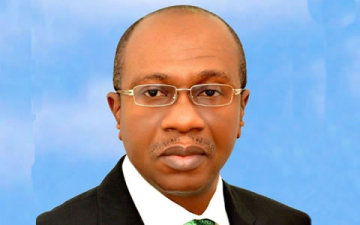L
LequteMan
Guest
Ratings agency Standard & Poor's on Thursday reiterated that Nigeria will have to devalue its currency. The agency expects this to happen at some stage in 2016 and in gradual adjustments.
"Their line has been to try to hold it as much as possible, and they are trying to continue that policy...alongside the restrictions on imports as well," said Ravi Bhatia, Director of Sovereign and International Public Finance at Standard & Poor's.
"But at some point they are going to have to move, but I think they are going to try and do it incrementally and not (in) big jumps," Bhatia told reporters in a briefing, adding he expected this to happen in one or two increments.
Brent crude accounts for about 95 percent of foreign earnings. A devaluation would only go some way to improve Nigeria's situation, said Bhatia.
"It will help a little, but the problems aren't going to go away - there is no easy avenue for them really," he said.
He saw government talk of shifting to non-oil revenue as "overstated" and not easy to do.
"(Nigeria) is going to face a very tough year in 2016."
Investors have seen a devaluation of the naira as long overdue for Africa's largest economy and biggest oil exporter, which has been battered by the tumble in crude prices.
The country's government however has blamed negative speculations as responsible for the Naira's depreciation, refusing to devalue the currency.
Reuters
"Their line has been to try to hold it as much as possible, and they are trying to continue that policy...alongside the restrictions on imports as well," said Ravi Bhatia, Director of Sovereign and International Public Finance at Standard & Poor's.
"But at some point they are going to have to move, but I think they are going to try and do it incrementally and not (in) big jumps," Bhatia told reporters in a briefing, adding he expected this to happen in one or two increments.
Brent crude accounts for about 95 percent of foreign earnings. A devaluation would only go some way to improve Nigeria's situation, said Bhatia.
"It will help a little, but the problems aren't going to go away - there is no easy avenue for them really," he said.
He saw government talk of shifting to non-oil revenue as "overstated" and not easy to do.
"(Nigeria) is going to face a very tough year in 2016."
Investors have seen a devaluation of the naira as long overdue for Africa's largest economy and biggest oil exporter, which has been battered by the tumble in crude prices.
The country's government however has blamed negative speculations as responsible for the Naira's depreciation, refusing to devalue the currency.
Reuters

